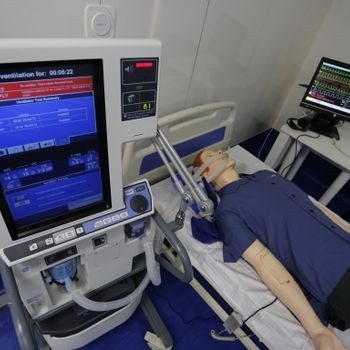Medtronic And Mercy: Sharing Data To Improve Healthcare
Real-world clinical data is key to creating more effective medical devices and improving patient health.
October 31, 2017 – A new partnership is proving just how important advanced data analytics are to improving patient care.
“This has a lot of potential,” says Dr. Joseph Drozda, a cardiologist and Director of Outcomes Research at Mercy, the fifth largest Catholic health care system in the United States.
Announced in October, Medtronic and Mercy will establish a new data sharing and analysis network that will help record clinical evidence to further medical device innovation and patient access.
“Often, traditional clinical trials can be complex, costly, and time-consuming,” says Darrell Johnson, Medtronic vice president of Data Science Business Solutions. “We’re excited to work with Mercy to develop a new way to answer questions about medical device safety and patient outcomes using valuable clinical information.”
The initial phase of the partnership will capture anonymous data from approximately 80,000 patients with heart failure. It will focus on how patients respond to Cardiac Resynchronization Therapy (CRT) – a treatment for heart failure that uses an implantable device to improve pumping efficiency of the heart.
Medtronic leaders believe this data will eventually lead to an improved experience for patients and will assist in further development of future medical devices.
"Having the ability to study patient care pathways and conditions before and after exposure to a medical device is crucial to understanding how those devices perform outside of the controlled clinical trial setting," said Dr. Rick Kuntz, SVP of strategic scientific operations at Medtronic. "By working together, Mercy and Medtronic hope to create a model that ultimately allows patients to benefit from the latest therapies and technologies as early as possible."
The partnership combines the company's knowledge of medical technology with Mercy’s expertise in integrating data analytics to care delivery.
“Heart failure is a complex, progressive condition," says Dr. Drozda. “To more effectively treat patients, we need a better understanding of how they are responding to treatment and what leads to better health. This model will lead to evidence-based insights for our clinical teams, and better health for our patients."

